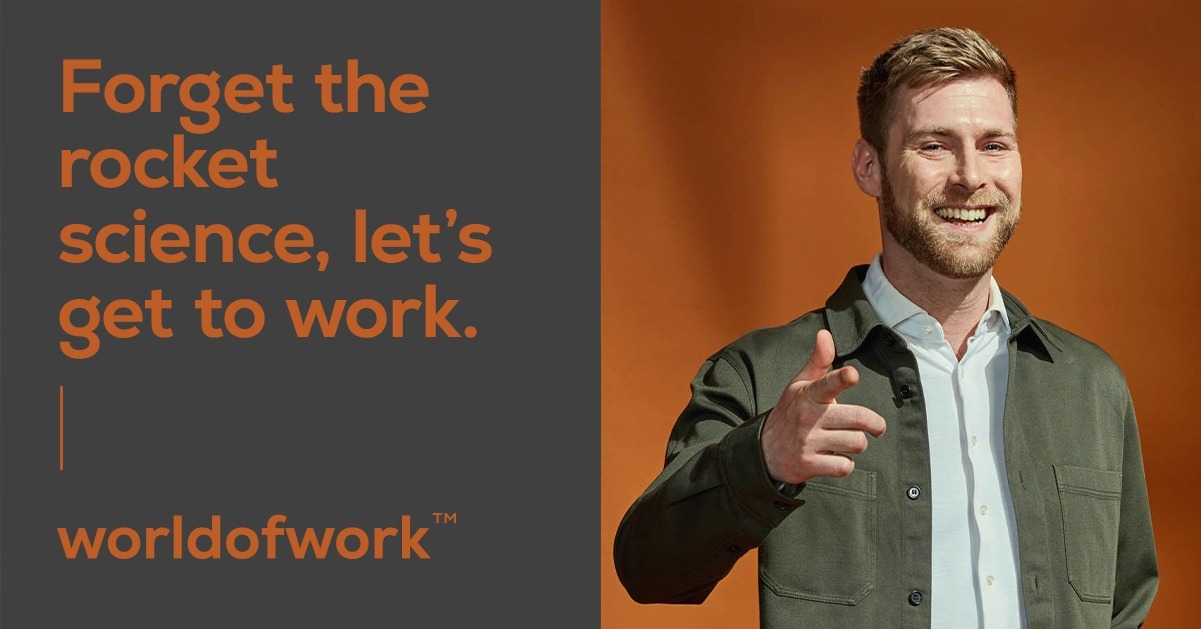Why valuing maintenance often brings more value than constantly chasing innovation
Let’s talk about FOMO in the workplace. FOMO, or fear of missing out, is a form of anxiety people experience when they are missing out on something new that’s happening around them. FOMO can be applied to plenty of areas of life, from the latest show on Netflix to the newest phone everybody talks about. As social creatures who naturally crave connection and belonging, we fundamentally fear missing out on the latest and greatest things.

Are we obsessed with innovation?
We easily fall in love with stuff that is new and generally seen as innovative. And to be perfectly clear; innovation is obviously a crucial force driving us forward as a species. The point here however is that sometimes we get blinded by it. Our (over)emphasis on innovation and our constant quest for the next big thing can sometimes make simple things unnecessarily complicated (and expensive). By using technology simply because it is new and available, we often find ourselves creating solutions for problems that don't even exist.
History is full of examples of new stuff that caused big waves of FOMO but proved to be total flops. Segway, Google Glass, and Juicero are just some of the “innovations” that were hailed as absolute game changers only to be dead and buried in just months.
Our obsession with the next big thing can sometimes stop us from keeping a healthy balance between stuff that is new and the things that we already have available. It's important to mix new technologies with improving the reliable methods that have proven to work well.
Looking at the HRTech space, it's clear that AI will significantly move the needle and impact the industry. Both software vendors and HR specialists need to deeply understand and incorporate it into everything they do and they need to do it quickly. However, currently we see companies going left and right rushing to buy or build the latest innovations and doing whatever to try to make sure they are not missing out on anything. It's worth questioning whether this approach truly benefits buyers and users at present. Just because a technology is new doesn't mean it's useful, productive, or profitable for companies in its current form.
Being fully occupied with the pursuit of the latest technology tends to blind organizations to the power of current systems. That’s why I argue that companies should focus more on maintenance and incremental improvement instead of just chasing innovation for innovation’s sake.

Is it just flashy, or will it bring actual results?
New technology is always flashy at the start, easily grabbing attention from early adopters and those interested in change. However, what matters is the end goal or purpose of a piece of tech. The question is if a new technology can actually help you or if it’s just signaling a promise of being innovative.
Carefully looking at innovation strategies, one learns that they are often only about short-term gains and quick wins, which is very likely to undermine long-term sustainability and true value creation. This approach can lead to a cycle of constant unstructured change without deepening the impact or effectiveness of new systems, let alone earning back the investments they needed to begin with.
In general, there are three fundamental problems with focusing too much on innovation as such and ignoring maintenance and incremental upgrades of current systems:
- Change fatigue. In general, people don’t like change because change is hard. If you’re constantly changing your way of working requiring your employees and customers to learn new things so they can do old tasks, they will become fatigued from all that change and disconnect. It’s no wonder change initiatives in the workplace rarely work - it is simply quite a struggle to change old habits. Continuous change leads to change fatigue which results in decreased morale, lower productivity, and more resistance to change in the future.
- Use cases. All innovations need a very specific use case - they need to solve a specific problem for a specific audience. Innovation for innovation’s sake never works because if you’re not solving a specific problem that people experience, they won’t use your product. Juicero is a great example of this, where the customers didn’t wanna pay $700 for a juice-squeezing machine when they could just get pre-packaged fruit bags for $5 and squeeze them faster manually.
- Burning money. Talking about Juicero is a great way to explain burning money on innovations that don’t have a use case. Juicero raised more than $120 million from investors only to have it flop instantly. The same can be said for Fab.com, which was valued at more than a billion dollars but was sold for $15 million.
Good results require time, effort, and focus. New technology gadgets, apps, and AI tools often have big potential but can only bring business benefits if you deliberately integrate them into your current infrastructure and stick with the plan, and avoid constant distractions from the next big thing on the horizon.
We need to understand that not every change is a positive one and if we implement a change, we should do it incrementally. Many significant advancements come from incremental improvements rather than groundbreaking changes. By focusing too much on radical innovation, we are likely to miss out on the cumulative benefits of smaller, consistent enhancements.
Maintenance and incremental improvements (or small steps of innovation) almost always bring the best results. Focusing on what works and what makes sense for you is always a wise strategy.

Celebrate the maintainers!
We will always need to work on maintaining the systems that we built, which is what most people’s work is centered around. This also very much goes for engineers, 70-80 percent of them spend most of their time just keeping things going. There is a lot of pride and honor in maintenance.
So before we blind ourselves with the latest tech and push our organizations towards constant changes in work methods and systems, we should think carefully before we begin. By taking a good look at the systems we already have in place, we can produce a thorough analysis of existing functionality that might not be fully utilized, and see where we can achieve our goals with simple adjustments and more attention for high-quality maintenance.
We just might be surprised by what is already possible and what we can achieve with a limited budget and minimal required changes from our users.
This is why we should celebrate the maintainers! They are the people who keep our companies running and make them better step by step. They are the unseen Atlas holding the world of work on their shoulders. And yes, we should always push for innovation and never stop re-imagining our workplace. But If we decide to introduce an innovation to our company, we’d better be able to explain in detail how it will do so.
